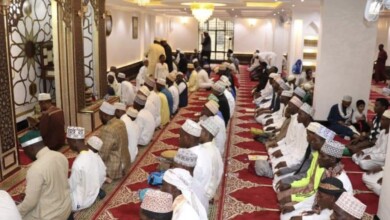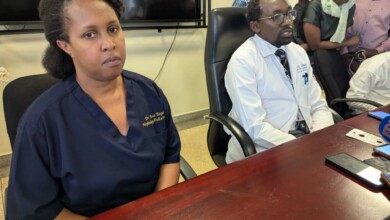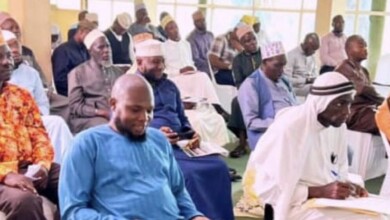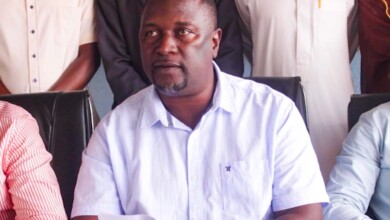The longest serving Imam at the National Mosque
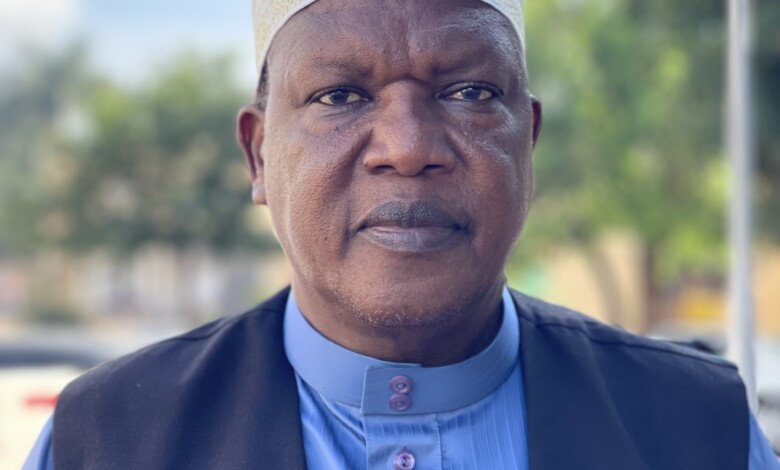
By Najma Salim
Sheikh AbdulWahid Ahmad Rashid is the longest-serving Imam at the National Mosque at Old Kampala.
For 25 years, the 53-year-old has led daily prayers, taught Islamic teachings (Darasa), received and trained new converts, and provided support to those in need, who often seek guidance and a compassionate ear at the mosque.
His transition into an Imam was not an overnight job. Sheikh AbdulWahid was nurtured by his father, Sheikh Ahmad Rashid, who was an Imam.
Imam Rashid came to Uganda from Somalia in the 1960s and later served with the Uganda Muslim Supreme Council a year after its inception in 1973.
As a father, he took it upon himself to instill Islamic teachings in his seven children, with AbdulWahid, his second-born son, receiving more attention for he had a special gift in Quran memorisation.
As Imam, Abdul Rashid grew weak with sickness, and under the leadership of Mufti Ibrahim Saad Luwemba, he requested that his son be granted a chance to assist him in leading prayers. Thus, AbdulWahid started with Taraweeh prayers during Ramadan and daily prayers.
During this time, his father also gave him his first Hajj on his behalf, saying, “Go, this will open doors for you.”
Upon Imam AbdulWahid’s father’s death on May 17, 1999, Mufti Muhammad Semakula, in his burial speech, appointed AbdulWahid as an Imam, saying, “We can’t repay what your father has done for the Muslim community, but we shall appoint his son to replace him.”
Amid grief and the duty to take care of his family, the responsibility was heavy for 28-year-old AbdulWahid, but one his life had prepared him for thus far.
Evolution of the UMSC
Staff payroll: In his time at the UMSC, AbdulWahid says he has witnessed many positive changes. His father had been removed from the payroll and, like other Imams, was asked to collect pay from the mosque. This, he says, was a hard venture. The mosque could only raise enough to pay its utility bills, like water and electricity. This has all changed, as the Uganda Muslim Supreme Council, under the leadership of Mufti Shaban Ramadhan Mubaje, has put all workers back on the payroll, making sure each has a bank account and is paid promptly at the end of each month.
Premises upgrade: He witnessed the mosque move from its small building premises to the grand, second-largest mosque in Africa that it is today.
The mosque foundation, while laid in 1976, had stalled until 2000, when Mufti Mubaje, through a connection with President Yoweri Kaguta Museveni, wrote a letter to three parties. He received a quick response from the President of Libya, the late Muammar Gaddafi, who financed the construction of the mosque. To date, it is a strong tourism attraction in Uganda.
Growth: Additionally, the UMSC has set up Radio Bilal, a television station (GTV), a hospital, and Uganda Islamic Call University, where Imam AbdulWahid himself had the chance to graduate in Islamic Studies and Arabic language.
Upskilling: The UMSC has sponsored education for people, one of which was an Imam training for three months at the Al-Azhar University in Egypt, which Imam AbdulWahid attended alongside four others.
Challenges:
Imam AbdulWahid expresses that the biggest challenge the Uganda Muslim Supreme Council battles with is a history of a negative reputation, which continues to infest its progress.
“Many people come here and are utterly shocked by the peace, welcoming environment. The media has painted the space as a battleground, a narrative that is built by people who are not in agreement with the Council for one reason or another. There is still a lot of work to be done in showcasing the good work of the Supreme Council.”
Furthermore, Sheikh AbdulWahid says that although there is a Zakat office at the Council, there is need for Waqf (an income-generating avenue) for just the mosque, to cater to the large numbers of people like travelers, people asking for transport, food to eat, those who have lost homes, and those who need a little capital to start a chapati stall, and so on. He says these people come directly to Imams for help, and a budget for them would go a long way in helping Imams effectively fulfill their duties.


